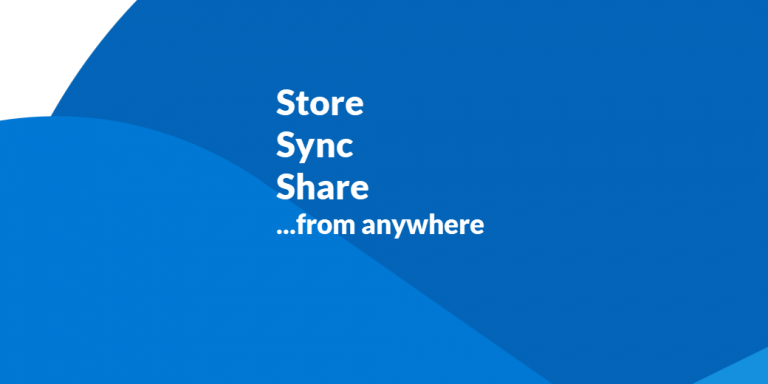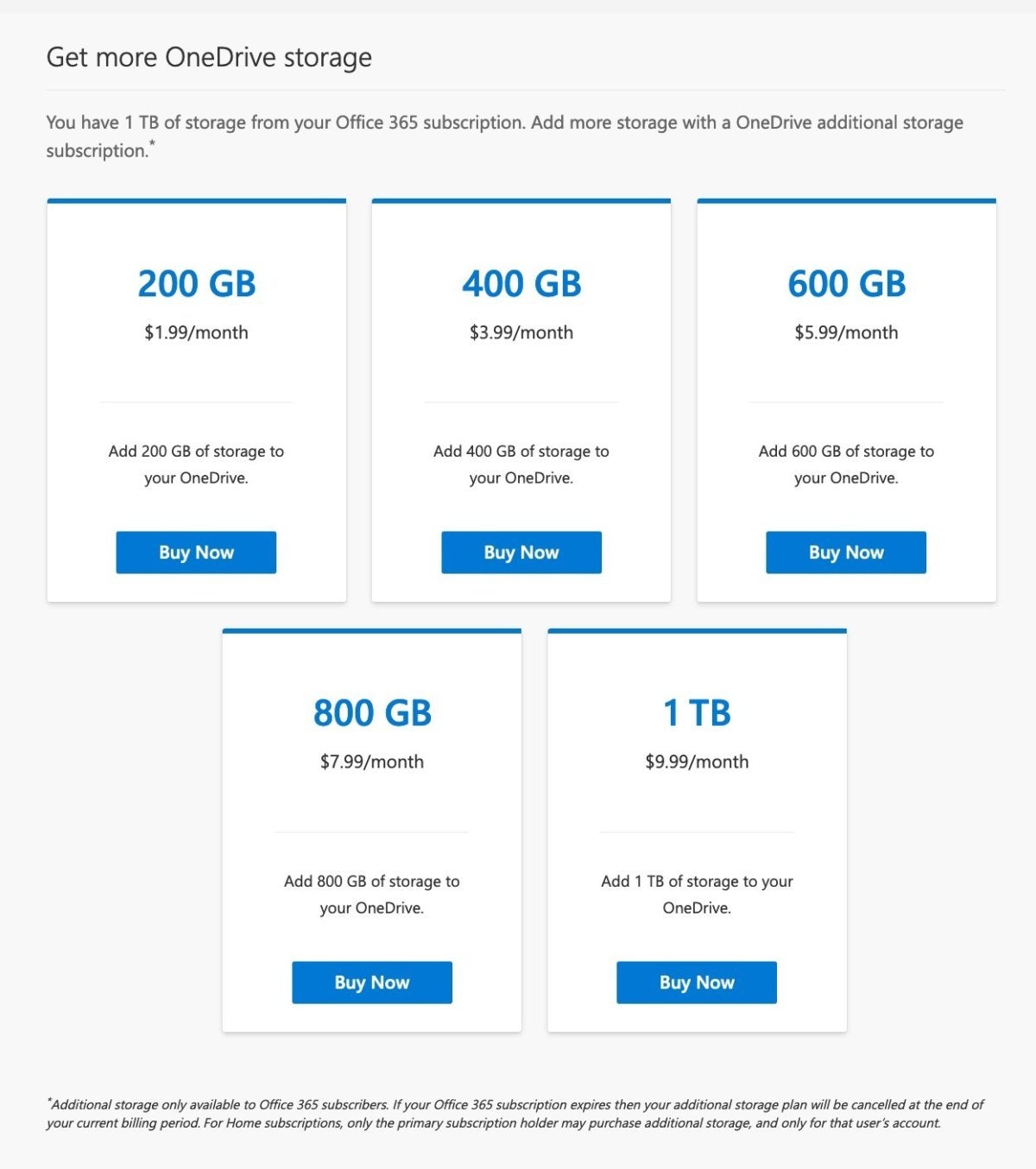
- #Microsoft onedrive pricing archive#
- #Microsoft onedrive pricing full#
- #Microsoft onedrive pricing registration#
- #Microsoft onedrive pricing Offline#
- #Microsoft onedrive pricing free#
Offers file versioning for MS Office documents and quality-of-service guarantees only in Business version Offers 500TB for single storage with a broader set of management options (lifecycle management, secure import/export via Azure data center)Īvailable as an option for saving MS Office files, so they could go directly to the cloudĭoes not provide special services for MS Office apps Targeted at individual customers mostly, but offers a special OneDrive for Business subscription plan making it possible to increase the storage limit up to 5TB for one user
#Microsoft onedrive pricing registration#
Users can activate OneDrive accounts via their existing Microsoft registrationĪvailable after a separate registration in Azure system Pre-installed in the latest Windows versions. In order to compare MS Azure to OneDrive, we will explore several important parameters: Azure Storage is a much more durable solution with a hierarchy of service tiers.
#Microsoft onedrive pricing free#
OneDrive is a lightweight online storage with a free tier of services suitable for home use.
#Microsoft onedrive pricing full#
However, you can use third-party desktop solutions such as MSP360 Explorer for Microsoft Azure with the full support of Azure Storage to manage your data there. By default, its users perform all operations with their storage via the standard online dashboard. Each tier is consequently cheaper to store files in, and consequently more expensive to recover.Īzure has no features for working offline, and it does not require client installation.
#Microsoft onedrive pricing archive#
Microsoft Azure has expanded their Azure Blob Storage to the several tiers, so users can store several types of data there - data, which needed to be accessed frequently (Azure Blob Hot Storage), data with less frequent access needs (Azure Blob Cool Storage) and data, that you need to preserve for archiving needs (Azure Blob Archive Storage). Besides, Azure supports file versioning to prevent data loss and has SLA with 99.9% processing success guarantee with about 98% of monthly uptime. The more remote copies are, the less the risk of data loss is. For example, choosing the Locally Redundant level will result in storing three copies of an object within a single facility, while the Geo-Redundant level means that six copies will be kept in two different locations. Data can be retrieved from the 'Hot' (frequently accessed) type of storage for free, but the user will be charged for uploading and storage usage.Īzure's Standard storage ensures redundancy of uploaded data, which level must be chosen before creating a backup. The total volume of blobs created by a single user can be up to 500TB.
#Microsoft onedrive pricing Offline#
Archived data can be stored in OneDrive together with other files and documents, but in order to prevent losses, Microsoft recommends its users to create offline backups and save file versions with the help of Windows built-in features. Let us summarize the differences between both editions in the following table:ġTB (can be increased for 5 user subscriptions)ĩ9.9% uptime, 24/7 phone support, and protection of user data from unauthorized access.įree OneDrive does not provide any specific tools for cloud backup or file versioning.

OneDrive for home users does not include a guaranteed quality-of-service level, but you can get SLA with OneDrive for Business.

The basic plan offers 50GB limit at $1.99/month and other plans offer even more storage capacity. Similar to Amazon Drive or Google Drive, it has some initial storage (5 GB ) available for free, but further expansion comes at a price. In order to activate cloud storage, users have to log in to website with their Microsoft account. But this local OneDrive folder needs to be synchronized with cloud storage, enabling a user to manage files both locally and in the cloud. Some basic MS products such as Office are integrated with OneDrive so that it is available as an option when saving documents. It is integrated into Windows 8, 8.1, RT 8.1, and 10.

OneDrive storage is a default solution for Windows users.


 0 kommentar(er)
0 kommentar(er)
